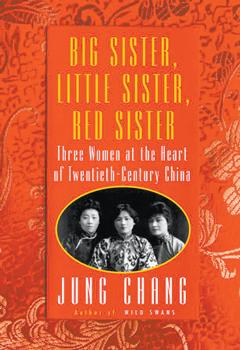 Is it really just a fairy tale?
Is it really just a fairy tale?
That is what some reviewers of a new book are calling one of my favorite stories. That book is “Big Sister, Little Sister, Red Sister: Three Women at the Heart of Twentieth-Century China” by Jung Chang.
The book profiles and puts in historical context the lives of the three Soong sisters who played important but very different roles in the history of China during the republican revolution and overthrow of the Manchu rule and the later Communist takeover in 1949.
The “fairy tale” began in the 1880s when Charlie Soong, a Chinese teenager, made his way to Wilmington, where he was baptized. Sponsored by North Carolina Methodists, he went to Trinity College and Vanderbilt University to prepare to return to China as a missionary. Back in China, he went into business, became wealthy and fathered three daughters. How they came to be important figures in Chinese history is the subject of the new book.
Soong sent all three to study in the U.S., where they learned to speak and read English as well as or better than Chinese.
The Big Sister of the book’s title is Soong’s oldest daughter, Ei-ling, who married a successful businessman and became wealthy. Red Sister is his middle daughter, Ching-ling, who married Sun Yat-sen, the first president of the Chinese republic.
Little Sister is his youngest daughter, May-ling, who married Chiang Kai-shek, the leader of China’s Nationalist government.
I have always been entranced by the North Carolina origins of this amazing and important family. But now, thanks to the new book, I have had to adjust my story.
First, I learned that the key to the Soong family’s success might have been more due to Charlie’s wife, Ni Kwei-tseng, than to Charlie. Ni came from an important and long-standing Chinese Christian clan and Ni was very devout. May-ling remembered, “I knew my mother lived very close to God ... asking God was not a matter of spending five minutes to ask Him to bless her child. …It meant waiting upon God until she felt his leading.”
Thus the Soong family’s solid Christian identity came not so much from Charlie’s North Carolina Methodist training as from Ni’s family background and her longstanding
commitment.
Secondly, I learned that Sun Yat-sen was not the hero I had always believed him to be. In the view of author Jung Chang, Sun was overrated, worked for his own aggrandizement rather than the good of the Chinese people and did not deserve credit for China’s revolution that overthrew the Manchu dynasty that had ruled China for centuries. Although he plotted for the rest of his life to become president of the new Chinese Republic, he served only a few weeks as interim president and spent most of his remaining life opposing those in power and inciting armed rebellion and civil war.
Sun had a mesmerizing power. His sister-in-law, May-ling, explained, “I have noticed that most successful men are usually not the ones with great power as geniuses but the ones who had such ultimate faith in their own selves that invariably they hypnotize others to that belief as well as themselves.”
She was describing Sun’s powers and, those of similar self-focused political leaders. Sun’s wife, Ching-ling, once deeply in love with him, became disenchanted with his self-focus. When Sun sought support from the Soviet Union to fund his efforts to take control of all of China, Ching-ling came in contact with Russians and the Communist ideology. After Sun’s death in 1925, she exploited her connection to Sun and styled herself Madam Sun Yat-sen. She used that connection to support the revolutionary efforts of the Mao-led Communists against the forces of May-ling’s husband, Chiang Kai-shek.
There is no fairy tale ending. Madam Sun Yat-sen and Madam Chiang Kai-shek never reconciled.
Charlie Soong’s daughters — no fairy tale
- Details
- Written by D.G. Martin

 How to resolve AdBlock issue?
How to resolve AdBlock issue? 








